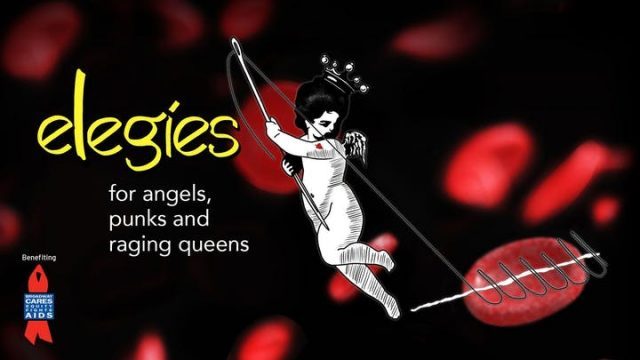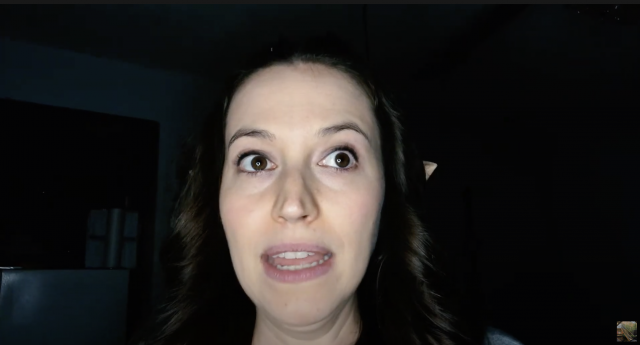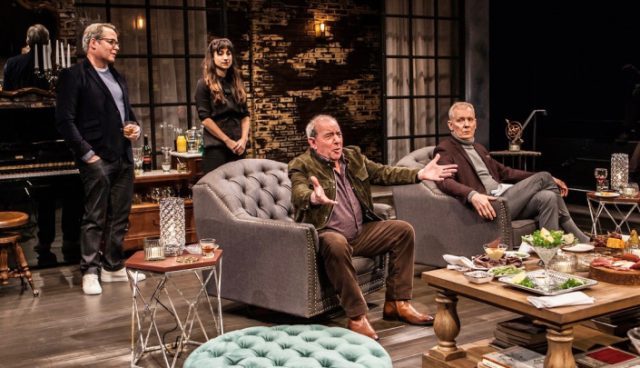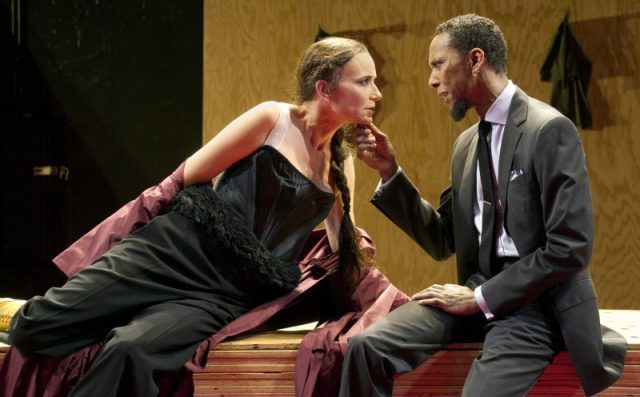
Jessica Jain, Sanam Laila Hashemi, Stephen Elrod, and Rajesh Bose star in TheaterWorks Hartford online adaptation of Ayad Akhtar’s The Who and the What
TheaterWorks Hartford
Through November 28, $28 for twenty-four-hour stream
twhartford.org
In a December 2017 piece for the New York Times entitled “An Antidote to Digital Dehumanization? Live Theater,” Pulitzer Prize-winning playwright Ayad Akhtar wrote, “I recently learned that a group of neuroscientists have discovered that watching live theater can synchronize the heartbeats of an audience. One of the researchers put it this way: ‘Experiencing the live theater performance was extraordinary enough to overcome group differences and produce a common physiological experience.’ The living presence of the audience is what strikes me as so singular about the theater, why I love working in the theater so much, and why I believe in the particular importance of our beloved form right now.” Referring to the actor’s body, Akhtar, who was born in Staten Island and raised in Milwaukee, later pointed out, “A living being before a living audience. Relationship unmediated by the contemporary disembodying screen. Not the appearance of a person, but the reality of one. Not a simulacrum of relationship, but a form of actual relationship. The theater is an art form scaled to the human, and stubbornly so, relying on the absolute necessity of physical audience, a large part of why theater is so difficult to monetize.”
With the pandemic lockdown, the theater community has had to reimagine what it can do without physical spaces where performers and audiences gather together while also figuring out how to monetize virtual productions. Amid shows presented on Zoom, YouTube, Twitch, Facebook Live, and other platforms, SAG-AFTRA, the actors union, is now allowing companies to stage shows in theaters without audiences, following all Covid-19 protocols for the cast and crew, filming the presentations for livestreaming and on-demand viewing for a limited time. I’ve seen San Francisco Playhouse’s excellent version of Yasmina Reza’s ‘Art,’ Chichester Festival Theatre’s thrilling adaptation of Sarah Kane’s Crave (with an audience), and Bill Irwin’s delightful update of On Beckett, recorded at the Irish Rep.
TheaterWorks Hartford was originally scheduled to perform Akhtar’s The Who and the What live onstage this past summer, which of course didn’t happen. But the show has now been filmed in the theater and is being streamed through November 28, featuring sets by Brian Prather, costumes by Mika Eubanks, lighting by Amith Chandrashaker, and sound by S. R. (It feels great to once again mention those critical jobs, which have changed so dramatically in the Zoom era.) The play, which made its world premiere at La Jolla Playhouse in 2014, is about a Pakistani-American family battling religious tradition.
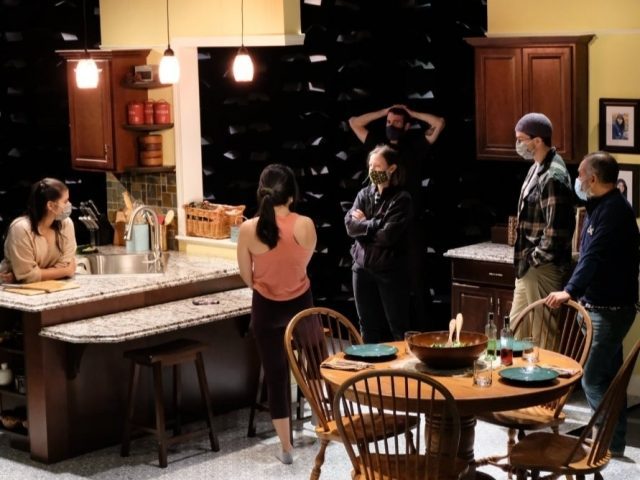
The cast and crew of The Who and the What rehearse in masks (photo courtesy TheaterWorks Hartford)
Afzal (Rajesh Bose) is an old-fashioned widower and a successful self-made businessman. His elder daughter, Mahwish (Sanam Laila Hashemi), is a scholarly writer, still carrying a torch for her old boyfriend, a white Christian, while his younger daughter, Zarina (Jessica Jain), is involved in a sexual relationship that she is hiding from her father, who would do more than just disapprove if he knew about it. Eager to marry off his daughters, Afzal creates an online dating profile for Mahwish and interviews a potential match, Eli (Stephen Elrod), a white Muslim convert who eventually hits it off with Mahwish, who is writing a graphic, potentially blasphemous novel about the prophet Muhammad’s seventh wife, Zaynab, and relating it to the current treatment of women in Muslim society. Over the course of a few years, the family must reevaluate who and what they are as relationships are challenged and religious morals are questioned.
Akhtar’s sizzling debut taking on race and identity, Disgraced, earned him the Pulitzer, and he has gone on to write The Invisible Hand, which links capitalism and terrorism, and Junk, a complex tale set in the mid-’80s world of greed and hostile takeovers. The Who and the What was the second play he wrote (and third to be produced in New York), but it has all the earmarks of a first work, an overly fervent family drama about second-generation Americans trying to find their place in a world that is no longer their parents’. (Akhtar’s parents met and married in Pakistan before immigrating to the United States.) Akhtar’s other works, including his novels, American Dervish and Homeland Elegies, are multilayered, sophisticated stories with intriguing characters and situations; the plot of The Who and the What fails to break away from genre clichés, and while the acting is solid, particularly by Hashemi and Elrod, the twists and turns are telegraphed, and the characters are never fully formed.
The production has several powerful moments, and director Aneesha Kudtarkar (Men on Boats, Trouble in Mind) ably guides the cast across actual sets, but the writing borders too much on television dramedy, albeit on a topic we are not used to seeing onstage or onscreen. Perhaps the lack of a physical audience is part of the problem. In a program note, Kudtarkar explains, “Not only is our country visited by deep religious and political divides, but we find ourselves physically divided in new ways as well, forced to breach even longer distances to reach our families. . . . In a year marked by unfamiliar distance, it feels so special to have come together to share this story and to invite you back into the theater.” Yes, it’s exciting to watch actors perform in a theater once again, but in this case, the distance cannot quite be breached.

